-By Anupama Nair
Mumbai, April 9
Swami Vivekananda (12 January 1863–4 July 1902), born as Narendranath Datta or Naren, was one of the greatest sons of Bharat Maa. He is one of the persons who has inspired me in every aspect of my life. Just reading his book “My India, Eternal India” on a train journey changed my views of my great Bharat Maa. In the words of a disciple of Swamiji Sister Christine “Our love for India came to birth, I think, when we first heard him (Swami Vivekananda) say the word, "India", in that marvelous voice of his. It seems incredible that so much could have been put into one small word of five letters. It seems incredible that so much could have been put into one small word of five letters. There was love, passion, pride, longing, adoration, tragedy, chivalry, and again love. Whole volumes could not have produced such a feeling in others. It had the magic power of creating love in those who heard it.” The result was me–, a big fan of the Western life and philosophy began to look towards my own country of birth. As it is not possible to write about such a great person in a single article, yesterday I wrote about his early, today I am writing about the Parliament of Religions and his death and some great quotes, which is a source of Inspiration.
The Parliament of the World's Religions was inaugurated on 11 September, 1893 at the Art Institute of Chicago, in Chicago, as part of the World’s Columbian Exposition. On this day, Vivekananda gave a brief speech representing India and Hinduism. Though he was initially nervous, he bowed to Saraswati Devi (the Hindu goddess of learning) and began confidently with "Sisters and brothers of America!". At these words, Vivekananda received a two-minute standing ovation from the crowd of seven thousand. According to Sailendra Nath Dhar, when silence was restored, he began his address, “greeting the youngest of the nations on behalf of the most ancient order of monks in the world, the Vedic order of sannyasis, a religion which has taught the world both tolerance and universal acceptance”. Though, "it was only a short speech, but it voiced the spirit of the Parliament of Religions."
John Henry Barrows, the President of the Parliament, hailed "India, the Mother of religions was represented by Swami Vivekananda, the Orange-monk who exercised the most wonderful influence over his auditors". Vivekananda attracted widespread attention in the press, which called him the "cyclonic monk from India". The New York Critique reported, "He is an orator by divine right, and his strong, intelligent face in its picturesque setting of yellow and orange was hardly less interesting than those earnest words, and the rich, rhythmical utterance he gave them". According to American newspapers Vivekananda was "the greatest figure in the Parliament of religions" and "the most popular and influential man in the Parliament". The Boston Evening Transcript stated that Vivekananda was "a great favorite at the Parliament, if he merely crosses the platform, he is applauded". He spoke several more times "at receptions, the scientific section, and private homes", topics related to Hinduism, and harmony among religions until the Parliament ended on 27 September 1893. He soon became known as a "handsome oriental" and made a huge impression as an orator.
After the Parliament of Religions, he toured many parts of the US as a guest. His popularity opened up new views for expanding on "life and religion to thousands". During a question-answer session at Brooklyn Ethical Society, New York, he stated, "I have a message to the West as Buddha had a message to the East."
Vivekananda spent nearly two years lecturing in the eastern and central United States, primarily in Chicago, Detroit, Boston and New York. He started the Vedanta Society of New York in 1894. During his visit to the West, he visited England twice, in 1895 and 1896, lecturing successfully there. During his second visit to the UK in May 1896 Vivekananda met Max Mueller, who was a noted Indologist, who wrote Ramakrishna's first biography in the West. From the UK, Vivekananda visited other European countries. Vivekananda was offered academic positions in two American universities (Eastern Philosophy at Harvard University and University of Columbia). However, he declined both, since his duties would conflict with his commitment as a monk.
He initiated several followers — Marie Louise who became Sister Abhayanda and Leon Landsberg became Swami Kripananda, so that they could continue the work of the mission of the Vedanta Society. This society still has foreign nationals and is also located in Los Angeles, California. During his stay in America, Vivekananda was given land in the mountains to the southeast of San Jose, California, to establish a retreat for Vedanta students. He called it "Peace retreat, or Shanti Ashrama. The largest American center is the Vedanta Society of Southern California in Hollywood. There is also a Vedanta Press in Hollywood which publishes books about Vedanta and English translations of Hindu scriptures and texts.
Vivekananda founded the The Ramakrishna Mission in 1897 for social service. Its ideals are based on Karma Yoga and its governing body consists of the trustees of both Ramakrishna Matt and Ramakrishna Mission and have their headquarters at Belur Matt, Calcutta. Vivekananda founded two other monasteries: one in Mayavati in the Himalayas (near Almora), the Advaita Ashram. Two journals were founded—Prabudha Bharatam in English and Udbhodan in Bengali.
Vivekananda had earlier inspired Jamshed ji Tata (founder of Tata Sons) to set up a research and educational institution when they travelled together from Yokohoma to Chicago on Swamij’s first visit to the West in 1893. Tata now asked him to head his Research Institute of Science. Vivekananda declined the offer, citing a conflict with his "spiritual interests". After brief visits to Lahore, Delhi and Khetri, he returned to Calcutta in January 1898. He consolidated the work of the matt and trained disciples for several months.
On 4 July 1902, Vivekananda awoke early, went to the monastery at Belur Matt and meditated for three hours. He discussed with colleagues and planned to establish a Vedic college in the Ramakrishna Matt. At 7:00 pm Vivekananda went to his room, asking not to be disturbed. He died at 9:20 p.m. while doing meditation. According to his disciples, Vivekananda attained “maha-samadhi”. The rupture of a blood vessel in his brain was reported as a possible cause of death. Vivekananda prophecy that he would not live forty years came true. He was cremated on bank of the Ganga in Belur Matt, opposite where his Guru, Sri Ramakrishna was cremated sixteen years ago.
Charles Freer Andrews a social reformer stated, "The Swami's intrepid patriotism gave a new color to the national movement throughout India. More than any other single individual of that period Vivekananda had made his contribution to the new awakening of India". His nationalistic ideas influenced many other Indian thinkers and leaders, like Sri Aurobindo who regarded Vivekananda as the one who awakened India spiritually.
“Bartaman Bharat” meaning "Present Day India" is an erudite Bengali language essay written by him, which was first published in the March 1899 issue of Udbodhan, the only Bengali language magazine of Ramakrishna Matt and Ramakrishna Mission. The essay was reprinted as a book in 1905 and later compiled into the fourth volume of “The Complete Works of Swami Vivekananda”
The greatest of Swamiji’s disciples was an Irish woman called Margaret Noble who later became Sister Nivedita. She was an Irish teacher, author, social activist, and later a disciple of Swamiji. She spent her childhood and early youth in Ireland. She was engaged to marry a Welsh youth, but he died soon after their engagement.
Sister Nivedita met Swami Vivekananda in 1895 in London and travelled to Calcutta in 1898. Swami Vivekananda gave her the name Nivedita (meaning "Dedicated to God") when he initiated her into the vow of Brahmacharya. She wanted to educate girls who were deprived of even basic education. During the plague epidemic in Calcutta in 1899, Nivedita nursed and took care of the poor patients. Nivedita had close associations with the newly established Ramakrishna Mission. She was very close to Sharada Devi, the wife of Sri Ramakrishna, and one of the major influences behind Ramakrishna Mission, and also with all brother disciples of Swami Vivekananda. She died on 13 October 1911 in Darjeeling. Her epitaph reads thus, "Here lies Sister Nivedita who gave her all to India".
In today’s world of such chaos, adharma and all other evils and now Corona, we will do well to remember this great monk and read his works. His birthday is celebrated as Youth Day in India.
Quotes of Swamiji
“Arise, awake, and stop not till the goal is reached”
“Say brother, the soil of India is my highest heaven, good of India is my highest good”
if there is any land in this earth that can lay claim to be blessed as punya bhumi the land where humanity has attained its highest towards gentleness, generosity, purity and above all land of introspection and spirituality, it is India
(Dedicated to Ramakrishna Mission –Trivandrum, Vivekananda Ashram – Kanyakumari, Ramakrishna Mission School – Jamshedpur, and Belur Matt – Calcutta)

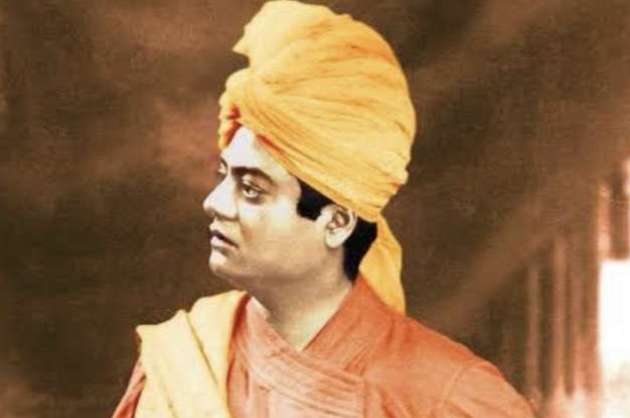


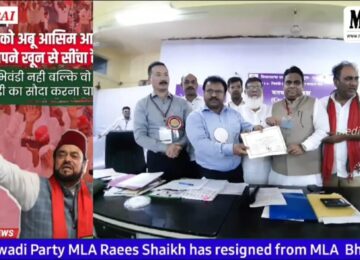
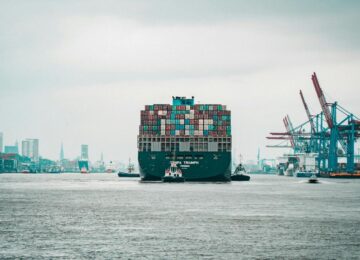
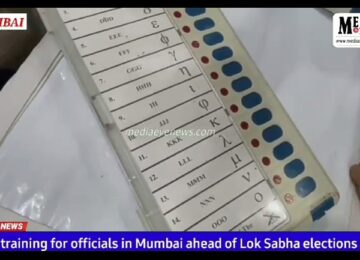














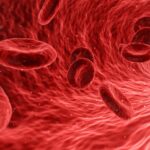
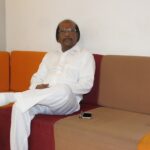
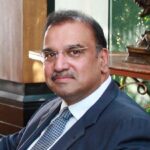

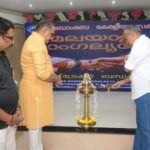
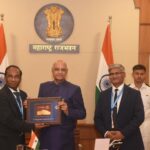

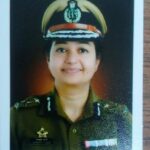
Great job
I read the book “My India Eternal India”. Swamiji is great
He is popular in the West still
He inspires me a lot.
Great man.
Great India eternal India
All Indians should respect him.
Came across this article while doing a google search for daughter’s history project.
Wee done Media Eye
Nice one. He is a great patriot
Great patriot
Apt before Gurupurnima
I admire him so much
I admire him so much
I admire him so much
I admire him so much
I admire him so much
I admire him so much
I admire him so much
Great man.
I admire him so much
Great souls of Incredible India
I admire him.
Great man
Great man
Great man
Great man.
Great man.
I admire him a lot.
I admire him so much
Great souls.
Great man.
Great man.
The Monk Who Changed the Perception of Bharat to the West
The Monk Who Changed the Perception of Bharat to the World
The Monk Who Changed the Perception of Bharat to the World
Great personality.
Great personality.
Great personality.
Great personality.
Nice article.
Great article
Great son of India.
Great son of India.
Great man
Swami ji you are great.
Swami ji you are great.